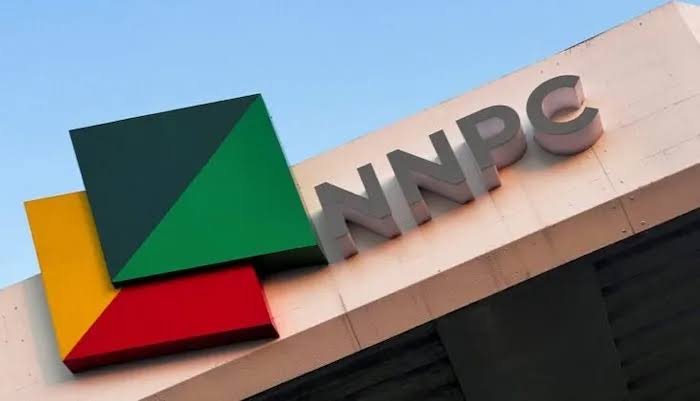
Following indications that the Federal Government might have returned subsidy payment on Premium Motor Spirit (PMS) due to the fluctuations of foreign exchange and crude oil price, stakeholders in the sector have said the N169.4 billion reported to have been paid for subsidy on PMS as a means to stop the hike in the pump price of petrol is inaccurate.
This is on the backdrop of several questions raised on the current PMS price despite worsening exchange rate and international crude price crossing $95 a barrel, suggesting a return of subsidy.
On Tuesday, Phrank Shaibu, Special Assistant on Public Communication to former Vice President, Atiku Abubakar, dared the Federal Government to publish the landing cost of petrol as well as the pricing template being used to keep the cost of PMS at less than N640 per litre, adding that government’s claim that the petroleum sector had been deregulated was a lie and subsidy was still being paid.
However, stakeholders told The Guardian that the purported return of subsidy was mere speculation.
Chief Executive Officer, Diary Hills Limited, Kelvin Emmanuel, said the N169.4 billion is payment Nigeria National Petroleum Company Limited (NNPCL) deducted for use in reconciling forward contracts on past crude oil swap deals that run until November 2023.
He added that sections 206(2)(3)(4) states expressly that wholesalers and retailers are not allowed to transfer live market prices to old stock, until a new stock arrives, which gives the Nigerian Midstream and Downstream Petroleum Regulatory Authority (NMDPRA) the right to enforce violation of the law on transfer pricing.
“Brent crude at above $90 and exchange rate above N1,000 means that prices are going up, but the question that needs answering is this: Is the old stock depleted? And based on transfer pricing rules, are marketers allowed to pass the cost of new stock on old stock?” he queried.
President of the Independent Petroleum Marketers Association of Nigeria (IPMAN), Chinedu Okoronkwo told The Guardian that there is no return of subsidy yet.
He said in terms of exchange rate, there is government window and parallel market window, noting that NNPCL calculates prices with the government window, which is official.
“For me, we are getting products from NNPC and whether we like it or not, 80 per cent or 90 per cent of products that come into the country is brought by them. All these speculations are what is killing this country, especially when we begin to speculate to cause panic within the polity,” he said.
Energy economist, Habeeb Jaiyeola, said the Nigeria Labour Congress (NLC) would not want to embark on strike if subsidy has returned, adding that it can only be accepted if an official announcement has been made by the President.
He added that the logistics element needs to be looked into to know how much reserve and storage existed, as the logistics might have played well for enough storage to make the price stable.
“We all understand the fact that Nigeria doesn’t have the financial muscle to continue to sustain subsidy regime, the price of the product is cheapest in Nigeria and surrounding areas have it higher, hence there would be movement of the product from cheaper clime to a more expensive clime where people will make more money and we end up subsidising the region, if we go back to the decision to return subsidy.
“The subsidy is sort of a bitter pill to swallow as a nation, but the benefit would yield fruits when we are able to have more revenue to put in matters that are of value to us to alleviate the poverty of citizens. We need to be focused on what the future entails for us and ensure critical decisions are sustained when taken,” he said.
Meanwhile, the Resource Centre for Human Rights & Civic Education (CHRICED) yesterday slammed the Federal Government over lack of accountability and sustainability in its policies on the removal of fuel subsidy.
The centre stated that it was difficult to understand why President Bola Tinubu’s administration was taking a contradictory stance, and the motivation behind the government’s approach of flip-flopping on the matter.
In a statement by the centre’s Executive Directive, Ibrahim Zikirullahi, he said: “Despite professing for several weeks that it made a courageous and bold decision to end the subsidy regime, it is now evident that the government has reinstated the scheme in a manner that is opaque and lacks transparency.
“Regrettably, the price of PMS will not return to what it was before May 29 even with the reinstatement of subsidy payments,” it stated.
“At the time, Nigerians who objected to the harshness of the policy were told to make the required sacrifice to save the nation from further financial hemorrhage. The government’s spin doctors were everywhere arguing that the removal of the fuel subsidy would eliminate fiscal constraints, curb corruption and mismanagement in the oil sector, and eliminate the unsustainable cost of the subsidy due to rising fuel prices and a growing population.
“In addition, they argued that the removal will ensure market efficiency, promote economic growth and development, and free allocations that can be channeled to the provision of infrastructure such as roads, education, health service, power, security, job creation, downstream sector development, improve our GDP growth, crack down on product theft, pipeline vandalism, environmental pollution, foreign exchange shortages, and enable the provision of basic benefits for the “poor in the society.
“However, less than 100 days in office, Tinubu’s government reversal, as evident in the covert reintroduction of subsidy payments, prompted close observers to wonder: what happened to the “spirit of courage” that President Bola Ahmed Tinubu claimed he possessed? Is it because the petroleum subsidy is no longer sham? Could it also be stated that the government no longer has to cope with oil thefts and frauds? Or is it possible that Tinubu’s government is currently being held hostage by the subsidy cabal and forced to reverse its position.
“Whatever the motivation, it is disturbing and unacceptable that the same administration, which previously praised itself for sparing the nation from the needless spending associated with subsidies, is now returning the nation to the same path through the back door. This means that the trillions of Naira that the government claimed to have saved by eliminating subsidies are now systematically being conned under the guise of resumption of subsidy payments.”
The centre added that the removal of subsidies will be a never-ending process unless the country ends its current absolute reliance on importation of refined petroleum products to satisfy its energy requirements.
Also, president of the Trade Union Congress of Nigeria (TUC), Festus Osifo, has urged the Federal Government to reveal how it spent the N1 trillion saved after ending the subsidy on petrol in May.
Osifo, on Wednesday, during an interview with Arise News, said the government promised it was going to save substantial money from removing subsidy on petrol.
In July, President Tinubu disclosed that more than N1 trillion that would have been expended on petrol subsidy, had been saved, stating that the funds will be disbursed for the benefit of Nigerians. This was after NNPC raised petrol price from N189 per litre to N568 per litre.
The TUC boss therefore called on the Federal Government to provide details on how the money had been spent, as the government shouldn’t be seeking loan after saving such a substantial amount.
“The President and Commander-in-Chief on his own came and said the country has saved N1 trillion. The Federal Government went everywhere to announce that if the subsidy is removed, it’s going to save substantial money.
“The question we have asked is that where are the money that you have saved from this subsidy. Part of this money that you must have saved, you deploy it on your citizens. That is what we have asked, is that too much to ask?
“And so, we don’t expect them to go everywhere and start borrowing money. They told us they are going to save money. So where is the money that you have saved and how have they deployed this money,” Osifo asked.
He also reiterated the call for reduction in the cost of governance, saying suggestions have been made to the government on what needs to be done.




